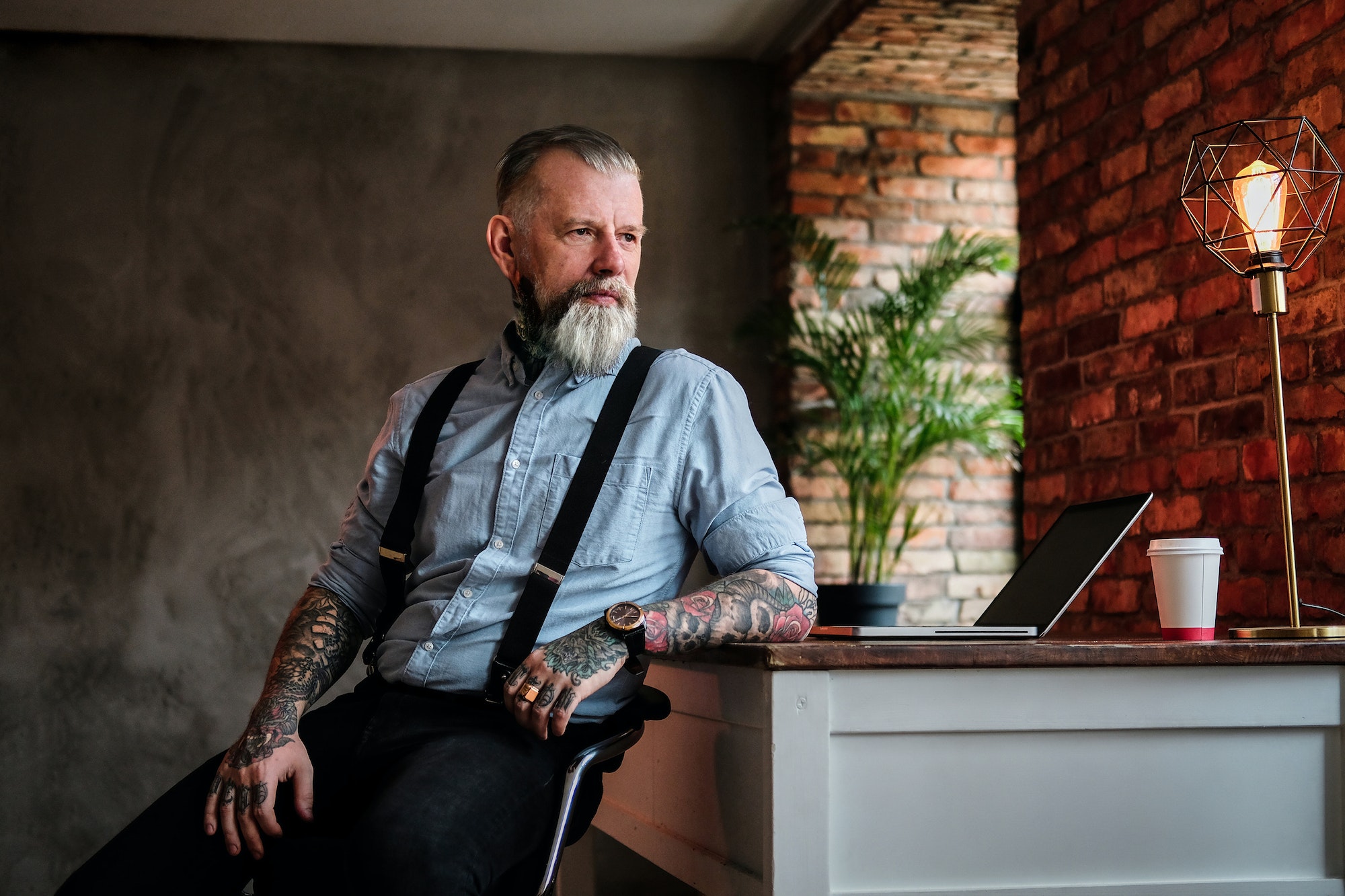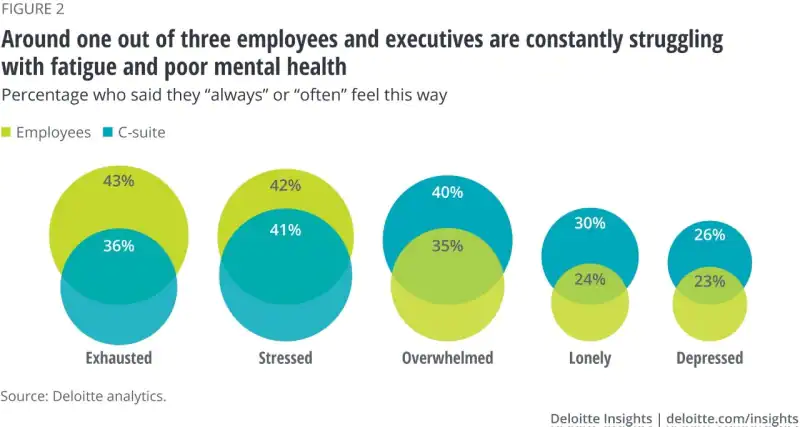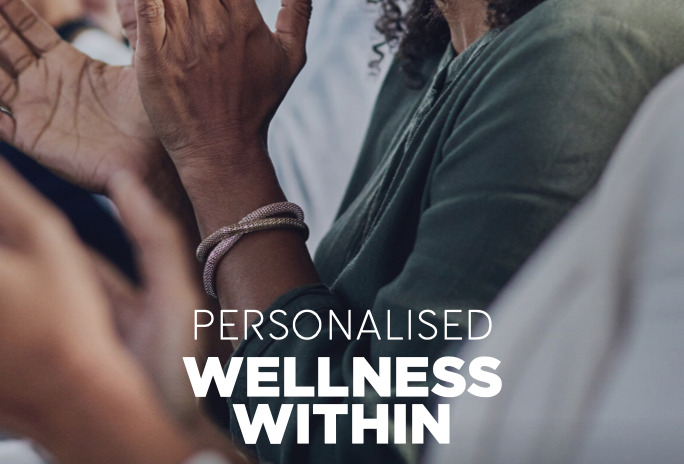The Executive Vitality
Blueprint
Transmuting burnout into sovereign leadership

EXECUTIVES
Transforming Wellbeing
Health-savvy executives can go beyond the wellness illusion to the reality of well-being—only if they knew how. Unfortunately, executive health products inherently contain a few fundamental shortcomings to achieve its objectives to better health. We have identified these shortcomings by implementing a health-by-design risk-based approach and personalized holistic health coaching to a renewed health transformation.
In fact, it has been stated that most companies now recognize the need to invest more in the health of their employees, because it’s clear that workers are fed up—with outdated norms like the nine-to-five schedule, the expectation that they should be “always on,” substandard wages and benefits, and the idea that they should be willing to sacrifice their health and their personal lives for their job. Yet again, the mediocre results of employee health following the traditional medical approach, bring about dismal results. Not even something worth investing in our opinion.
C-suite executives themselves are no less immune. Personal earnings don’t correlate to improved health. It many instances, it is actually the antithesis of well-being.
And as we’ve seen with the Great Resignation, many people are no longer willing to tolerate jobs that leave them unhappy and in a constant state of stress and fatigue. Indeed, there’s been a notable power shift over the past few years, with workers demanding more from their employers than ever before and companies scrambling to adapt their employee value proposition to avoid a looming talent shortage.

Statistics reveal that there is up to a 50% probability that one will develop cancer today. Fast forward to 2020, it is projected that everyone will develop cancer.
With cancer being the number 2 cause of premature death in the USA population, closely related to the working population in South Africa, how does one prevent oneself from developing one or more of over 200 different types of cancers?
The answers to preventing disease is available. The question is why don't you know about them and how to go about preventing them and or early suffering?
STEP 01
DETERMINE CONTEXT
- Investment management
- Financial planning
- Personal health & wellbeing
- Insurable Exposures
- Retirement Planning
- Security & Intelligence
STEP 02
IDENTIFY & EVALUATE RISK
- Risks identified
- Risk prioritised
- Risks selected on inherent assessment
- Root-cause analysis
- Risk evaluated
- Risk quantified financially
STEP 03
DETERMINE CONTROLS
- Determine existing control
- Determine control gaps
- Determine control improvement
- Determine new controls
- Finance controls
- Implement new controls
Service Options:
Wellness is not something one does in isolation from the holistic picture. As such our team of experts considers a wellness portfolio to include, all health aspects, social interactions, leadership insights, financial goals and objectives, and how they all align.
- A comprehensive health risk-based analysis and risk management control plan that reflects the current situation and recommendations in alignment with your current objectives;
- All lab work, genetic testing and specialized test are used to determine health risk exposure and form the baseline for your health regeneration;
- Revision of your last will and testament to determine whether it is enforceable and aligned to your financial objectives and succession;
- Revision of current investments platforms, the costs being incurred in the fund which minimize performance, and whether the asset allocation is appropriate to your risk profiling;
- Ensuring and assisting with a Medical Aid plan assessment and moving to an appropriate plan to cover your particular needs;
- Assist with a budgeting exercise and planning to ensure that expenses are within budget allocation;
- Provide a plan to upskill and educate you in the financial planning environment so that you can comfortably and confidently make informed decisions.
Our Introductory and Masterclass Courses create a starting point if you’re just beginning this journey and expert opinion to true healing. Inside our courses, you’ll receive:
- Foundational insights around lifestyle factors that help to increase energy, restore the gut & balance hormones, improve digestion and improve sleep quality and quantity.
- Access to Peter via virtual or buy up to a one-on-one session. This is your opportunity to connect directly + consistently with a trusted practitioner.
- Using strategic sciences, you will have the support to deepen your commitment to yourself and your health goals, so you can have the health you desire.
- Resources in your dedicated Course Library, including recordings, supplement discounts, guides and protocols.
- Opportunities to enhance your experience with lab, genetic and specialized testing. These tests are available in the assessment and evaluation stages of the courses.
A Private program may be best for you if you’d like customized, one-on-one support.
- Depending on your requirements, you receive everything in the Health Courses, plus:
- Personalized, one-on one consultations focused on your unique needs, goals and desires as it relates to your health, your financial plan, personal exposures and family wellbeing. These are private calls between you and Peter.
- Curated supplement protocols and recommendations designed by Peter and based on your lab and or genetic test results. You’ll know exactly what supplements + lifestyle recommendations to enact in order to restore your health.
- Private calls with a dedicated health coach or functional medical practitioner who serves as your personal consultant and accountability partner for as long as you’re in the program.
- Exclusive discounts on certain tests, supplements and other resources. You’ll receive unique pricing available only to you as a private client.
SERVICE LIST

If of high net-worth consider the HNW experience.
- As a VIP, you’ll receive everything in the Health Courses, plus:
- Personalized, one-on-one consultations focused on your unique requirements, goals and desires as it relates to your health. These are private calls between you and Peter.
- Curated supplement protocols and recommendations designed by Peter and or his functional network of experts, based on your lab and or genetic test results. You’ll know exactly what supplements + lifestyle recommendations to enact in order to restore your health.
- Private calls with a dedicated health coach or functional medical practitioner who serves as your personal consultant and accountability partner for as long as you’re in the program.
- Exclusive discounts on certain tests, supplements and other resources. You’ll receive unique pricing available only to you as a private client
- An all-inclusive personal growth and protection experience. This includes an assessment of the mechanism implemented to protect you and your family. Then in addition all growth strategies bring about optimum well-being across every dimension of life and family.
- High-touch interactions with Peter and team, via text and audio. Peter or his team will be available to you Monday-Friday for all your health-related needs. Your personalized health coach, who could also be a functional medical practitioner will connect with you more frequently to ensure maximum success.
- Where required, a full assessment of the family environment and guidance to other family members.
- Opportunities for additional support from Peter + the team in the form of exclusive training, visitations and education opportunities.
